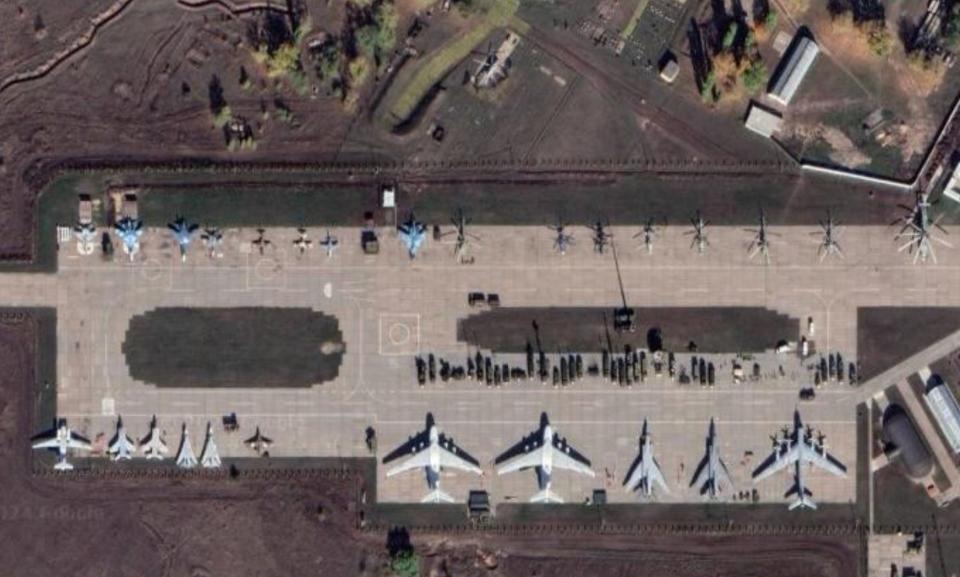Deadly Russian Su-34 bombers are sitting ducks for Ukraine's ATACMS. But it can't attack without US approval.

Near the border of northeastern Ukraine, some of Russia's lethal Su-34 fighter jets sit in the open.
The bombers have been used to pound Ukraine with regular barrages of glide bombs.
But Ukraine must seek US approval to strike the exposed jets.
Near the border with northeastern Ukraine, some of Russia's deadly Su-34 fighter bombers lie exposed on the tarmac of a military airfield as they await orders to carry out their next attack.
Voronezh Malshevo airbase is a launching point for jets operated by the Russian Air Force's 47th Guards Bomber Aviation Regiment.
The 47th has regularly taken part in attacks on the Kharkiv region while also frequently carrying out strikes on Ukrainian forces and civilians using highly destructive glide bombs.
Satellite images of Voronezh Malshevo airbase show what appears to be a group of Su-34s, along with other planes and helicopters, lined up on the runway — seemingly there for the taking.

At just 100 miles from the Ukrainian border, the base is easily within range of Ukraine's US-manufactured Army Tactical Missile System (ATACMS), a 300 km (186 miles) surface-to-surface artillery weapon system.
However, the United States prohibits Ukraine from striking recognized Russian territory with the ATACMS. Kyiv is only permitted to strike targets within sovereign territory, including occupied territory. Ukraine this month struck Sevastopol in occupied Crimea with ATACMS missiles, killing at least four people and injuring over 150 others. Moscow blamed the United States for the attack and vowed to retaliate.
It will likely be a major frustration for Kyiv, which has embarked on a dedicated campaign to hamper the Russian Air Force and take out the Su-34s.
Ukraine has often been forced to rely on equipment like drones to carry out these strikes, which can be thwarted using electronic systems.
Earlier this month, Ukrainian forces launched at least 70 drones at a military airbase in Russia's Rostov region, almost 200 miles from the Ukrainian border.
In that attack, a satellite image of an airfield close to Morozovsk also showed what appeared to be multiple Su-34 fighter bombers once again lined up in the open.
A Russian Telegram channel claimed one source in the Russian General Staff said: "Most of the drones were shot down, a few failed. We have six dead, including two military pilots. And more than ten wounded."
The extent of the damage to aircraft caused by the attack was not yet known.
Russia has ramped up its use of powerful glide bombs as its war in Ukraine has progressed.
The cheap munitions are produced by attaching wings and satellite navigation systems to old Soviet-era bombs.
Russian jets like the Su-34 are then able to release them from safer distances, making it hard for Ukraine to counter such attacks.
New video footage shared on Russian Telegram channels last week appeared to capture the first combat use of Russia's huge 6,600-pound glide bomb.
The colossal FAB-3000 bomb was dropped by a Su-34 jet, Forbes reported.
"The fact that Russian forces have figured out how to launch FAB-3000s is a significant development and will increase the destructive potential of Russia's ongoing glide bomb attacks against Ukrainian forces and infrastructure," the Institute for the Study of War wrote in an update on the conflict.
Read the original article on Business Insider


